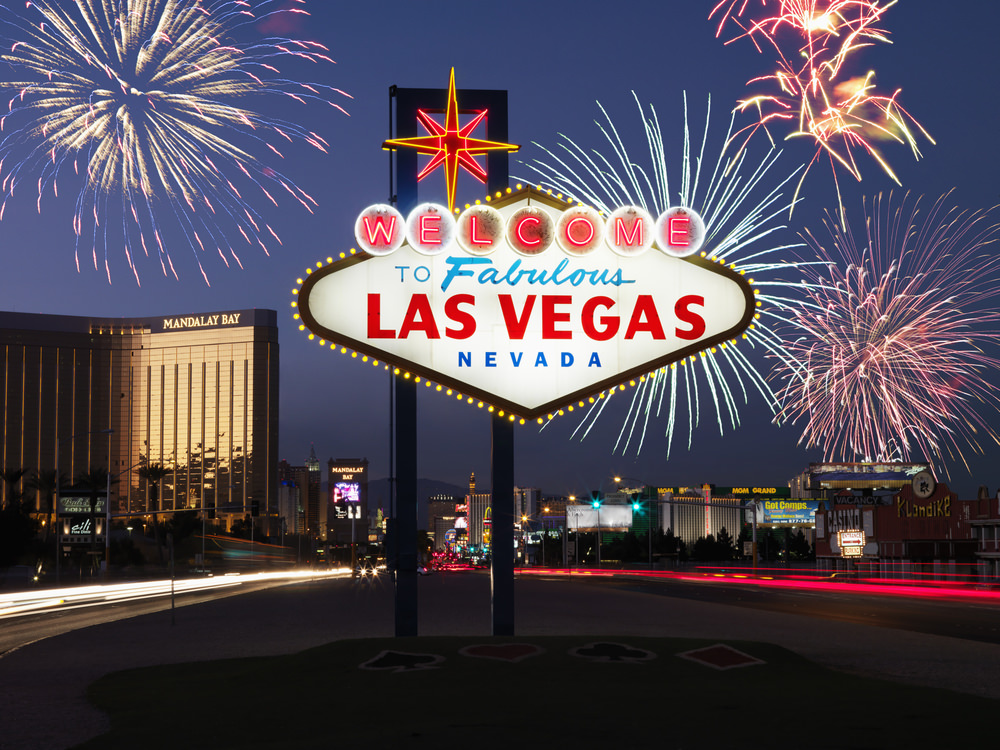
Las Vegas Casinos Accept Bitcoin, But Not for Gambling
The D Las Vegas Casino Hotel and Golden Gate Hotel & Casino have announced they will become the first hotels in Las Vegas to directly accept bitcoin for purchases.
Notably, acceptance will be limited to certain sections of the hotels, including the Golden Gate’s front desk and the D’s front desk, gift shop and on-site restaurants American Coney Island and Andiamo Steakhouse. However, bitcoin will not be an accepted payment method on the casino floor, Derek Stevens, co-owner and CEO of the D and Golden Gate, told CoinDesk, due to ongoing concerns from state regulators.
Golden Gate is primarily owned by Desert Rock Enterprises, an investment company led by Derek and Greg Stevens. The brothers are also co-owners of the D. From 22nd January, both properties will use the services of Georgia-based payment processor BitPay to handle transactions via tablet and mobile devices. Stevens said his company elected to use BitPay due to its ease-of-use.
The oldest hotel casino in Las Vegas (Golden Gate, built 1906) now accepts #bitcoin http://t.co/F7tGwqti39
— BitPay (@bitpay) January 21, 2014
Though patrons will be barred from bitcoin gambling, Stevens indicated that he believes his hotels have much to offer the currency's dedicated user base.
Davis went on to suggest the decision to accept bitcoin would also appeal to Vegas residents who have relocated to the city due to its growing status as a technology hub.
A big step for bitcoin
While bitcoin gambling services have long been a staple on the Internet, the decision by Golden Gate and the D puts real-life bitcoin gambling one step closer to reality, even if this milestone is still far off. Stevens indicated that Nevada's gaming regulation bodies remain wary of bitcoin and what it could mean for the city's businesses.
"I do think that from the Gaming Commission's perspective that there's some greater interest in understanding with some better clarity where the US Treasury and the IRS falls on this before it makes a determination on whether bitcoin can be used in casino cages to purchase casino chips or to purchase slot play," he added.
Still, bitcoin could mean big a new market for the hotels and Vegas at large, as it seeks to improve on recent record visitation figures. As of June 2013, one website in particular, SatoshiDice, was estimated to account for between 25% and 50% of all bitcoin transactions.
However, while notable, the D and Golden Gate are not located on the infamous Las Vegas strip, signaling that despite an increased interest from the area's hotels, bitcoin has not yet cracked mainstream acceptance in Vegas.
Built in 1906, Golden Gate was one of the first hotels erected on Las Vegas' famous Freemont Street. Today, the area is known affectionately as "Old Vegas," and it draws more interest for its historic ambience than its nightlife.
This appeal is evidenced by advertising for properties such as the D, which is marketed to customers in the Great Lakes region of Ohio, Illinois, Indiana, Michigan and Wisconsin, whereas major nightlife destinations such as The Cosmopolitan frequently advertise nationally in major metropolitan areas.
Top bitcoin attraction
In addition to hosting the annual Inside Bitcoins conference, Las Vegas has nurtured a thriving bitcoin community, complete with a number of local merchants and retail outlets accepting the currency.
Rumours that major hotels were considering accepting bitcoin began surfacing last year, however, sources told CoinDesk that issues with the local gaming commission may have hampered these early initiatives.
Stevens reported that the pressure may be on at many hotels, however, as he stated that the number of customers inquiring about bitcoin acceptance at his properties helped sway his decision to become involved in the movement:
If you're planning to spend your bitcoins in Vegas following the news, click here for our complete guide to everything bitcoin in Las Vegas.
Vegas Welcome Sign via Shutterstock
DISCLOSURE
The leader in news and information on cryptocurrency, digital assets and the future of money, CoinDesk is a media outlet that strives for the highest journalistic standards and abides by a strict set of editorial policies. CoinDesk is an independent operating subsidiary of Digital Currency Group, which invests in cryptocurrencies and blockchain startups. As part of their compensation, certain CoinDesk employees, including editorial employees, may receive exposure to DCG equity in the form of stock appreciation rights, which vest over a multi-year period. CoinDesk journalists are not allowed to purchase stock outright in DCG.

